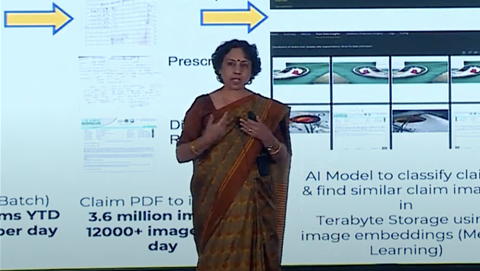Hong Kong Metropolitan University (HKMU) is integrating artificial intelligence (AI) to enhance learning, streamline operations, and advance research across a range of disciplines.
The university's growing student population, with a mix of part-time and full-time learners, required a secure, and scalable infrastructure.
Initially, it relied on cloud-based services, which was becoming costly and difficult to manage for AI initiatives.
HKMU’s director of information technology, Simon Cheung King Sing told iTnews Asia the university required computing and storage resources for AI projects to run complex, data-heavy AI applications, including smart chatbots, natural language processing, and research in smart city development.
After evaluating multiple vendors, the university has deployed Lenovo’s ThinkSystem SR670 V2 servers on campus, said Cheung, with additional support to address technical issues for the university.
Within months of deployment, HKMU launched a library chatbot powered by OpenAI’s GPT-4, enabling students to access information on library policies, opening hours, and entitlements to resources.

The university's Knowledge AI Chatbot for the library has seen a 38 percent reduction in response time, while the number of questions handled increased by 128 percent.
- Dr. Simon Cheung King Sing - Director of Information Technology, Hong Kong Metropolitan University
Notably, 77 percent of inquiries were resolved outside office hours, reducing manpower requirements, and incorrect responses decreased by 74 percent, ensuring accurate support for students, he added.
Transforms education and research
HKMU utilises Lenovo’s AI solutions across three areas, including teaching and learning, administration, and research.
HKMU’s assistant director of information technology, Henry Lin, said for teaching, the university has deployed ChatGPT to support teaching analytics and make AI literacy accessible to students.
In administration, AI-powered chatbots handle tasks of IT services, library processes, and admissions, said Lin.
The plan is to develop an AI-powered tutoring assistant to provide students with 24 by 7 course support, enhancing learning and student satisfaction.
Lin mentioned that HKMU’s School of Science and Technology is leveraging AI to support research in machine learning, analytics, and smart city initiatives.
The university is developing a Centralised AI Hub that integrates on-premises high-performance computing (HPC) servers, cloud-based AI packages, high-speed networks, and data pools to create a unified AI environment, he added.
This hub will enable researchers to conduct complex simulations and develop AI models, offering a platform for advancing research capabilities.
Lenovo Infrastructure Solutions Group’s managing director and regional manager, CAP & ANZ, Kumar Mitra, said the university uses the ThinkSystem SR670 V2 as it offers high GPU performance for AI, machine learning, and deep learning workloads.
The system also includes a natural liquid cooling system, optimising data center efficiency without high operational costs, said Mitra.
He added that AI projects are inherently complex and touch parts of an organisation’s infrastructure, including data quality and sources.

This complexity, combined with the iterative nature of AI model development, made on-premises deployment favourable to using public cloud services.
- Kumar Mitra, Managing Director and Regional General Manager, CAP & ANZ, Lenovo Infrastructure Solutions Group
On-premises deployment helps address concerns about data privacy and security while reducing the time and cost implications of frequent model updates.
Lenovo offers a flexible consumption-based model for AI infrastructure, allowing HKMU to scale based on actual usage, which helps avoid over-provisioning and unnecessary expenses, said Mitra.
Future outlook
HKMU is utilising AI-powered learning analytics to develop large databases that enhance understanding and support of student learning.
According to HKMU’s Cheung, the system can intelligently compare student behaviours with larger datasets to offer insights on how to enhance success.
On the administrative side, the university is leveraging management analytics to analyse financial and operational data for informed decision-making, he added.
It is developing an AI-powered assistant that leverages co-pilot technology, large language models (LLMs), service APIs, and AI agents to create a unified user interface.
This interface will streamline and optimise the management of the university’s daily operations, improving efficiency across various administrative tasks.
HKMU’s Lin said the university is setting up Virtual AI Labs using Docker technology and AI models, providing students with a virtual environment.
This will help experiment with the latest AI tools, offering hands-on learning opportunities to explore cutting-edge technologies flexibly and interactively.
He added that the university provides researchers with pre-built AI toolkits, including sentiment AI, speech AI, vision AI, and knowledge AI.
These toolkits, accompanied by practical use cases and examples, will support the development of projects.
As HKMU looks ahead, it aims to expand AI initiatives, exploring new applications that can drive innovation in teaching, administration, and research.









